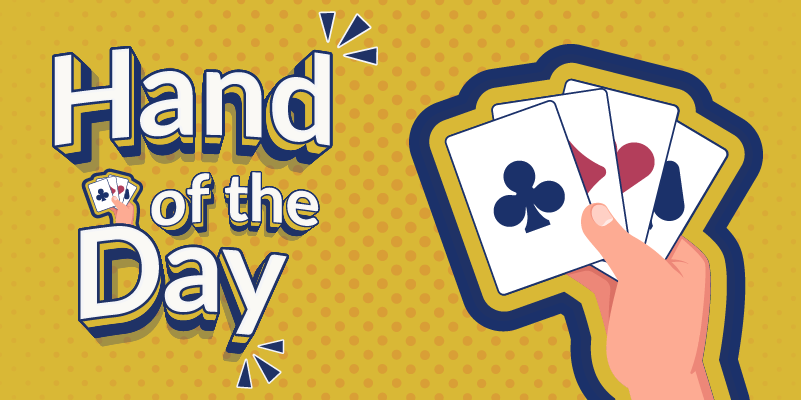


This article accompanies the quiz 'The Takeout double'.
Takeout double is a bid double after opponents' opening with a suit on any level. On this article we'll concentrate on a takeout double after 1 level opening.
Example:
Opponent opens 1♥, and now it's your turn to bid.
a. Some players have an agreement that to double in this position you need 4 cards in major (in this case it would be Spades) but, you can be more flexible by having at least 3 cards in the other suits.
b. If you have 17+ points, then you can double with ANY distribution with a hand which isn't suitable for a 1NT overcall (no need for tolerance for all other suits nor to be short in opponent's suit).
c. You're sitting West
This is not a normal takeout double as the double doesn't come on the second seat but on the 4th seat (balancing seat) after 2 consecutive passes. That means that bidding is going to end if you pass. Where are all the points? Clearly, your right opponent is very weak for his pass (showing 0-5 points). That means partner must have some points but did not bid, why? It's likely partner has a hand which isn't suitable for a take out double (maybe a missing suit or length in Heart). So, you need to protect your partner and reopen the bid. The double here shows (8)9+ points and tolerance for all other suits.
a. Any suit bids, without a jump, shows 0-8 points.
b. Any suit bids with a jump, is showing 9-11 points (could be 4 cards):
You're sitting West
Your bid here shows 9-11 points and 4 cards in Spades.
c. With a game forcing hand you can bid opponents' suit (a Cue bid). Or, if you have 5 cards in the other major and game values (including distributional points) you can bid directly to game level (as you know that partner has at least 3 cards in that major + opening values):
You're sitting West
You can count that you and partner have at least 25 points and at least 8 cards in Spades (your partner has 3 cards and you have 5 cards).
d. Responding Takeout Double with No Trump is the same as NT responses after a normal opening, but you also need to have a stopper in opponent's suit. So, after 1♥ by opponent and Double by partner, your bid will be:
1NT= 6-10 points with a stopper in Hearts.
2NT = 11-12 points with a stopper(s) in Hearts.
3NT = 13-15 points with a stopper(s) in Hearts.
e. If, after the double, your right-hand opponent makes a bid, then you are on a free bid, and MAY pass, as the double is canceled by the opponent. You may bid though, if you have something.
f. An unusual situation can occur where you have good trumps and points. You can then consider passing (especially if opponents are vulnerable), which is the strongest response you can make, leaving the double as a penalty double on a 1 level contract.
If your hand isn't suitable for a takeout double (no 3 cards in all other suits or not enough points) then you need to pass with a minimum hand. Note that partner can bid later with a weaker hand (balancing), realizing you might have points but no bid.
Have a go at putting this into practice
Oren Lidor is considered one of the best bridge teachers in Israel, is the author of 5 bridge books, and teaches bridge to people from all over the world on BBO.



